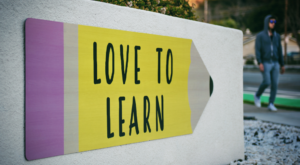I didn’t plan mental wellness as the topic for my December post, but Christmastime certainly seems appropriate given it’s potential to be a transformational gift to oneself! This area is for me one of the most interesting aspects of my wellness model for a variety of reasons, not least of which is that it concerns one of the most complex and fascinating parts of the human body: our brain!
The brain can be likened to a muscle that needs to be stretched, massaged, exercised, and challenged on a regular basis so it can become stronger and more elastic. I am convinced that mental capabilities, if not cultivated, will gradually atrophy. Not only can that lead to diminished mental capacity in the present, but it could be a contributing factor to the onset of dementia and Alzheimer’s disease. Those are outcomes I’m eager to avoid!
While learning of any type is beneficial for expanding our horizons and keeping us from stagnating, researchers have identified certain activities as being stimulating and challenging enough to prevent—and in some cases even reverse—mental decline! Some of these include certain memory exercises, becoming conversant in a new language, and learning to play a musical instrument.

Photo by Tim Mossholder on Unsplash.com
In designing and implementing my own personal Total Wellness plan, I’ve explored a variety of avenues for nurturing and expanding my mental capacity over the years. I often joke that when I left the coal regions I had a limited vocabulary, a significant portion of which I couldn’t use in public! To stretch that part of my brain I have been making an effort to add new words to my vocabulary using the site Word Genius. “Septuagenarians” is a new favorite I like to use with my peers—often eliciting some curious looks!
Inspiringquotes.com is an additional “stretching” resource which often turns my thinking on its head and helps me see things in a whole new light. Even the daily devotional sites I have chosen are ones that usually challenge my understandings and enlarge my perspective, taking my faith journey in new and unexpected directions!
Nowadays there are sites specifically designed to exercise your brain. Rita and I both tried out one called Luminosity, a science-based program which claims to increase cognitive functioning, memory, and processing speed. Some exercises came much easier for me than others, but I didn’t let my natural inclinations (or lack thereof!) put me off. I have come to believe that it is those things we find most difficult that provide us with the biggest opportunity for growth.
Working on our weak points is easier said than done. And one reason is directly related to that amazing organ I mentioned before—the brain—and one region specifically: the hippocampus. The hippocampus plays a critical role in learning, emotional reactions, and memory formation and storage. It is believed to encode and store a wide variety of messages and experiences over our lifetime that affect decisions we make, conscious and unconscious, every day of our life journey.
Because the brain’s first priority is keeping us alive, it is designed to pay special attention to anything which might pose a potential threat and “red flag” it in our memory. Unfortunately, this life-preserving bias has the unintended consequence of making us exquisitely attuned to negative stimuli across the board. That’s why a single negative comment can lodge itself in our hippocampus and affect our behavior even decades later.
I can see this show up my own life all the time. If I receive ten compliments and one criticism, I can tell you which one will stick with me! Does this happen to you, too? If so, you can thank your hippocampus—it’s doing its job to keep you “safe”! But what keeps us safe also keeps us from growing.
The impact of a negative comment is only amplified if we have heard it not once, but repeatedly. Often the same or similar messages come from a variety of sources including parents, peers, significant others, teachers, coaches, the church, community, and society in general.
Typically, we internalize those messages and they become “self-messages,” things we continue to say to ourselves over and over. Usually, they are not spoken out loud and may even be operating on an unconscious level below our awareness. These messages can have a profound impact on how we live out our lives and our ability to access all we are capable of.
In counseling or coaching we are often trying to identify, root out, and replace those self-messages that are preventing us from risking and exploring those areas and possibilities that previously seemed unattainable and stand in the way of fulfilling our potential and becoming all our creator envisions for us.
The fact that I’ve spent over 45 years helping others break free from their limiting self-messages does not in any way mean that I’m immune myself. Far from it! I have wrestled with a range of negative self-messages over the years with varying levels of success. I’d like to share some of my struggles in this regard. The first involves my musical abilities.
As a child my mother strongly encouraged me to join the children’s choir, which I did. The woman who conducted the children’s choir was wonderful, caring, and supportive; however, when she moved into a teaching mode she seemed to switch from English to Greek. In addition, it seemed challenging for her to find the “best spot” for me to sit in the choir.
After a few weeks she called me aside and said, “I expect you joined the choir because your mother wanted you to; however, you don’t seem to enjoy singing so if you want you can just move your lips and you don’t have to sing!”
That worked for a few weeks but then my mother asked me one Sunday after church why I was just moving my lips but not singing? I explained to her that the director gave me that option. After my mother spoke with the director it was agreed it would be best that I not continue in the children’s choir!
That experience and the subtle message that I was musically incompetent settled in my brain. As an adult, even though I loved music and enjoyed singing, the only place I would sing was in the shower and I never even considered taking up an instrument.
It was only well into adulthood that I decided to defy my hippocampus. Now, it is important to point out that I did not overturn the belief that I am musically challenged (friends have kindly informed me that I am a monotone and that that was the reason I was very good at carrying firewood but it would be difficult for me to “carry” a tune!). But singing or playing a musical instrument—even terribly—was not going to kill me, no matter what my hippocampus might think.
After some theological reflection, I resolved to once again sing aloud in church, deciding that God is tone deaf when it comes to us “making a joyful noise” in worship! Even if I’m not on key, I’m enthusiastic. A friend commented, “Terry, you may not be choir material but I sense you enjoy singing as much or more than any of us!”
Then, when I semi-retired, Rita, who always claimed there was an instrument out there “somewhere” that I could play, came across a “pickin’ stick” which she then bought me for Valentine’s Day. To take advantage of this opportunity, I had to adjust my expectations and my understanding of success! I celebrated my courage in making the effort rather than the outcome. And I considered it a big accomplishment when two listeners were able to correctly identify a tune I played!
stick” which she then bought me for Valentine’s Day. To take advantage of this opportunity, I had to adjust my expectations and my understanding of success! I celebrated my courage in making the effort rather than the outcome. And I considered it a big accomplishment when two listeners were able to correctly identify a tune I played!
Another example is something I’m struggling with currently. Recently when I was asked to be MC at an Earth Day event at a park in inner-city Lancaster, many of the participants spoke Spanish as their first language. As I had many times in the past, I again I realized it would have been a real gift in developing relationships if I could have responded in their native language. And, as I mentioned earlier, learning a new language is also one of the very best exercises for the brain.
However, my hippocampus informs me that learning Spanish is not an option for me based on an experience that occurred over 50 years ago. My sophomore year in college we were required to take a language as part of our graduation requirements. I decided my best chance was to take German because of my heritage and the fact that my maternal grandfather had attempted to teach me Pennsylvania Dutch.
Within a few weeks the professor began conducting the class in German! I had no idea what was happening in class from that point forward. Near the end of the semester the professor called me into her office and said, “Terry, I have some good news and some frank advice. I never had a student try so hard and learn so little! I decided to pass you on effort but please take advantage of a new option and sign up for intercultural studies instead!”

Photo by Dan Gold on Unsplash.com
She was kind and gracious but again that experience sent a clear message to my hippocampus that learning a new language wasn’t going to be possible for me. It’s a message I carry to this day. Every time I see a language-learning program like Babel advertised, I am tempted to purchase it. But haven’t followed through yet. That deep-rooted message is still affecting my decision making!
I’m convinced that learning Spanish—even just enough for a simple conversation—would open up a bounty of blessings in my life if I could only overcome my resistance. I’ve taken the first step—naming the limiting self-message—perhaps now as we enter the Christmas season it’s time for me to have the courage to step up and claim the gift that’s just waiting to be unwrapped!
QUESTIONS FOR DEEPENING THE SPIRITUAL JOURNEY
- How would you rate your mental wellness? Are you constantly learning or do you feel “stuck in a rut”?
- What was the last difficult thing you set yourself to learn?
- Make a list of things you would like to learn. What is holding you back?
- How comfortable are you with being a beginner? Do you believe it’s not worth doing something if you can’t do it well? Do high expectations keep you from pursuing things you enjoy or enjoying things you pursue?
- If you get a criticism, does that carry more weight than a compliment? How can you actively push back against your brain’s over-concern with negative input?
- Do you deliberately seek out information that challenges your beliefs or do you prefer data that supports and confirms your views? What are the consequences of your approach?
- What limiting self-messages do you carry? Where did they come from? Do you challenge them and if so, how? If not, how is this serving you?
Banner photo by Milad Fakurian on Unsplash.com


Terry,
Living alone for the past 8 years is a drain on my mental state. Your encouragement to learn something new and challenging certainly makes sense.
Good stuff here. I enjoy learning new skills. I haven’t bothered lately I’ll try your #3 to see what I find. Thanks keep em coming.
I am taking a Spanish Class at Active Life in Allentown (senior center). I never took Spanish in high school or college, but I am enjoying the challenge.
I knew that we remember the negative things in life easily. I met with a woman whose husband I had taught in first grade years ago. (He is now an elementary school teacher!) He was a sweet boy. I really do remember him. Anyway, he had told his wife that his memory of my teaching him was that, on the playground one day, I called him over and said another boy complained that I gave him “the finger”. I said that was not a nice thing to do and that he wasn’t to do it again. He had replied, “But… Read more »